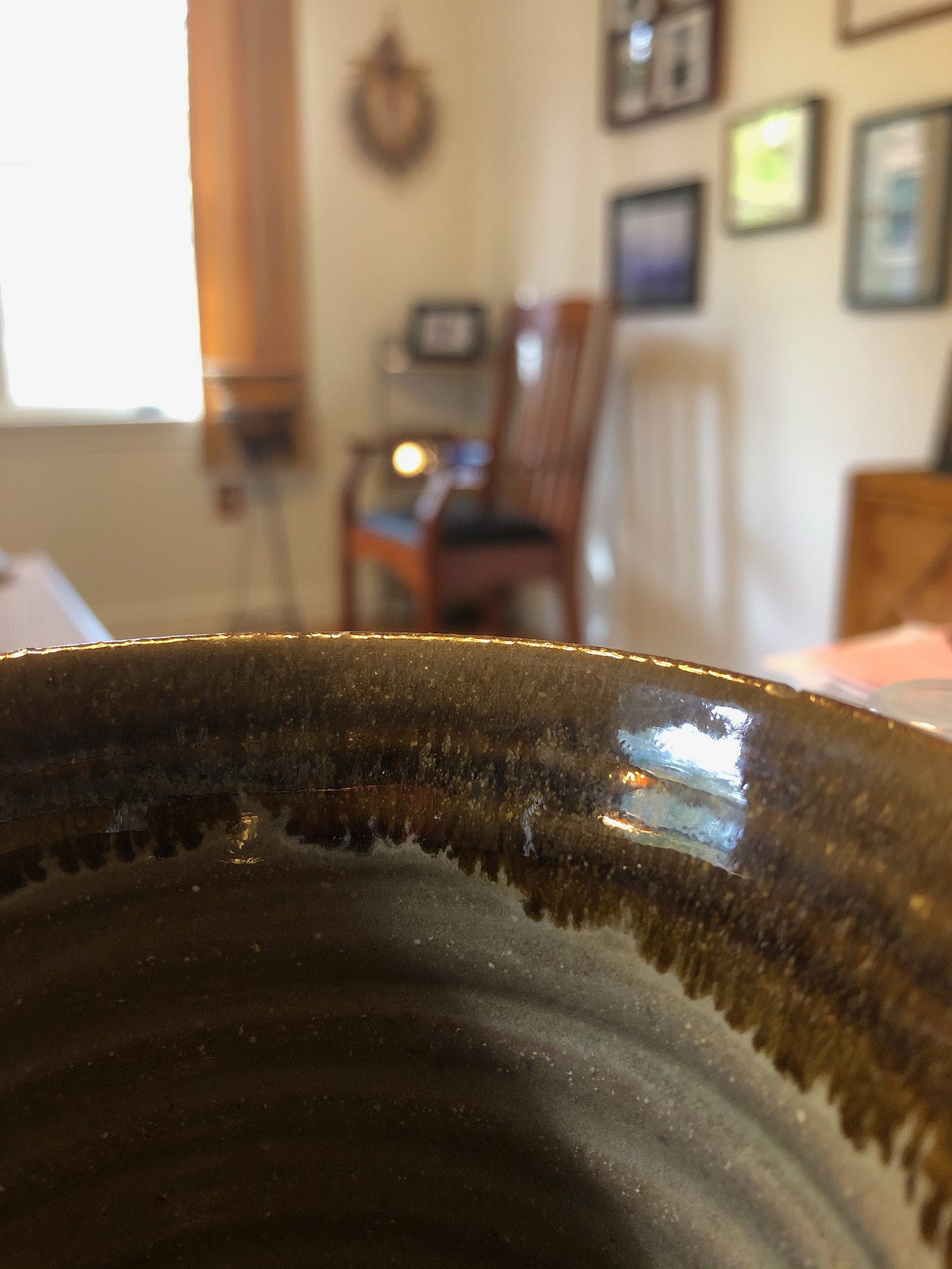American artists, like Williams and Jarmusch, have taught me how to pay close attention. I’m not ready to give up on the idea of American exceptionalism. At least not this kind.
It’s 5pm on Thursday and I’m sitting out in the yard on an Adirondack chair, leaning back into a pillow. I’m looking up. The sky is beginning to turn into that late October twilight blue with the sun slowly descending behind the trees.
Two bats have arrived from out of nowhere and they swoop in circles overhead. Even with the sound of the street traffic and the Google speaker I left on the front steps blasting out Miles Davis, I can hear the faint squeaking of the twin creatures, each one swiping the tip of the other’s wings with every balletic turn into the ether.
Earlier in the day, I sent my spouse Janyce a text acknowledging the end of the workday. “Meet me at the firepit right at 5pm,” I said.
She never answered, but I can see her now, bathed in the orange light of the kitchen through the window, while outside the evening is starting to take on a bluish tinge. She is at the counter with the bar supplies mixing up the cocktail we talked about at breakfast.
The yard is a mess. I left a dump truck’s worth of mulch on a tarp in the driveway and leaves have been piling up on the lawn for weeks while we wait for the yard cleanup crew. My red wheelbarrow is still sitting outside collecting rain.
“You know, there are two kinds of people,” says Janyce, who is walking toward me, setting the glasses onto the metal table beside her chair, tossing me a cloth napkin.
I immediately grab for my my glass and take a sip of the bourbon.
”I can taste the smoke,” I say.
“Amazing, huh?” she says. “I used just a bit of the smoked maple syrup.”
She sits down in her chair and starts poking at the fire forgetting to finish her thought.
When I was about eight years old, we moved into a 1970s-style raised ranch house, newly constructed. The builders left behind a set of two pleather bound volumes of American poetry for every new homeowner as a symbol of American pride. Nobody in my house cared about those books but me, even though they would sit for years on a decorative bookshelf hung on the wall over our couch. I memorized so many of those poems growing up.
The books were a collection of only American poets: Edna St Vincent Millay, Edgar Lee Masters, Emily Dickinson, Ralph Waldo Emerson, William Carlos Williams. I loved them all, although the poems by Williams wouldn’t make sense to me, really, until college. His well known red wheelbarrow poem comes to mind right now, as I spy my rakes and shovels left out and leaning against each other on the ground.
so much depends
upon
a red wheel
barrow
glazed with rain
water
beside the white
chickens
“There are two kinds of people, I think,” says Janyce again. “Those that do well with routine and every day being the same and those that don’t.”
“You didn’t like the movie much, did you? I say.
“It’s not that I didn’t like it.” she says. “It definitely got better when something finally happened.”
“That was the point, though,” I say.
The other day, I noticed a reflection in the glaze on my ceramic coffee cup. When I looked close, I could make out the shape of my office window and my desk lamp. I snapped a picture with my Iphone. It reminded me of a tiny still film frame from a spool of super 8 film.

Jim Jarmusch’s films linger lovingly on the most miniscule details of daily life.
Paterson, released in 2016, is a film that delights in the beauty of those bits of ephemera found in common everyday places. William Carlos Williams’s poems are abundant throughout the film, both literally and figuratively.
To me, it’s also a distinctly American film. Janyce and I are still discussing it here in the yard days later, while purposefully avoiding the last of the political debates on television. I can’t watch the President anymore. Nor can I fully come to terms with the profound disappointment and disillusionment I feel about our country.
American artists, like Williams and Jarmusch, have taught me how to pay extreme attention. I’m not ready to give up on the idea of American exceptionalism. At least not this kind.
I’m drawn to the loners, the drifters, the solitary seekers—and the most romantic of those quintessential American ideas—the artist who makes something profound and beautiful out of nothing much at all.
I take another sip of my cocktail with my head resting back against the chair, my gaze upward. We’re both quiet, studying the night. Now the bats are gone, the expanse of blue has clouded over, creating a relief map of snow-covered mountains surrounding deep black lakes. When I close my eyes and then open to refocus, I can just barely make out the tiny pinpricks of stars, appearing suddenly like bubbles, slowly rising to the surface of the sky.
Know others who might like to read this column on Saturdays?



